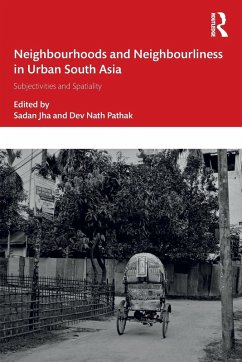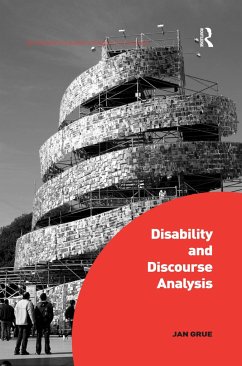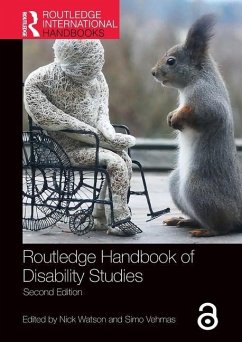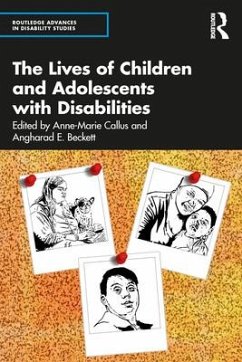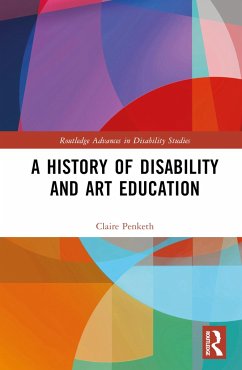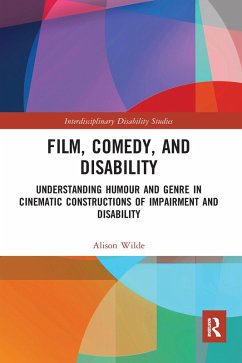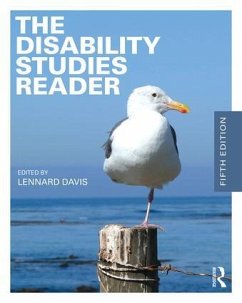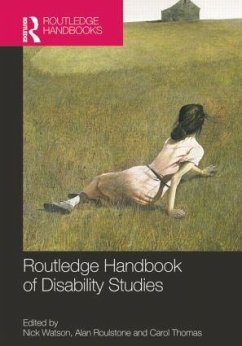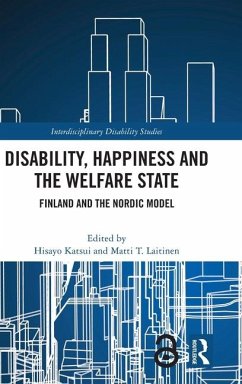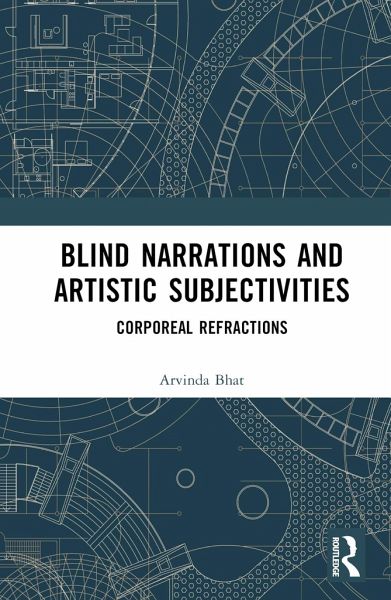
Blind Narrations and Artistic Subjectivities
Corporeal Refractions

PAYBACK Punkte
77 °P sammeln!
Blind Narrations and Artistic Subjectivities: Corporeal Refractions makes an important contribution to the field of blindness studies by highlighting the centrality of blindness in literary compositions. It presents a critical interpretation of selected prose writings by three blind authors: Argentine poet, short story writer, and essayist Jorge Luis Borges; Australian religious educator and diarist John M. Hull; and the American memoirist and poet Stephen Kuusisto.The volume discusses themes liketheorising the corporeality of writingaesthetic turn to the experience of blindnessaltered sensati...
Blind Narrations and Artistic Subjectivities: Corporeal Refractions makes an important contribution to the field of blindness studies by highlighting the centrality of blindness in literary compositions. It presents a critical interpretation of selected prose writings by three blind authors: Argentine poet, short story writer, and essayist Jorge Luis Borges; Australian religious educator and diarist John M. Hull; and the American memoirist and poet Stephen Kuusisto.
The volume discusses themes like
theorising the corporeality of writingaesthetic turn to the experience of blindnessaltered sensation and self-understandinglived experience of growing blindself-knowledge through interaction with the worldartistic subjectivity, narrative choices, and the 'implied' author
This book will be useful for scholars and researchers of blindness studies, disability studies, arts and aesthetics, literature, cultural studies, and philosophy.
The volume discusses themes like
theorising the corporeality of writingaesthetic turn to the experience of blindnessaltered sensation and self-understandinglived experience of growing blindself-knowledge through interaction with the worldartistic subjectivity, narrative choices, and the 'implied' author
This book will be useful for scholars and researchers of blindness studies, disability studies, arts and aesthetics, literature, cultural studies, and philosophy.



